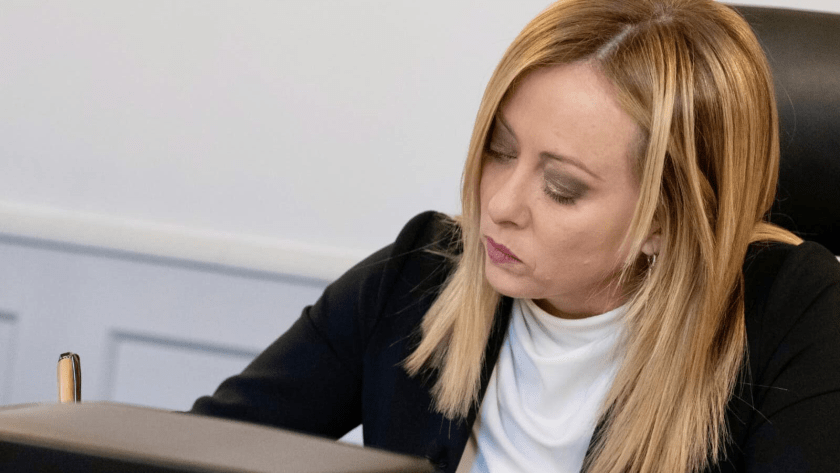
Photo: Giorgia Meloni on Facebook, 4 February 2023
Italian PM Giorgia Meloni has vowed to keep fighting the politicized court ruling that barred the first shipment of migrants from being transported to the country’s offshore detention centers in Albania. The prime minister is working on changing the rules about designating countries as ‘safe,’ and is set to present her proposal to the Council of Ministers later on Monday, October 21st.
“As long as we have the support of the citizens, we will continue to work with determination, with our heads held high, to implement our program and help Italy grow, become strong, credible, and respected,” PM Meloni wrote on social media on Monday, promising to go through with the plan one way or another. “We owe it to the Italians, to those who chose us, and to those who, despite not having voted for us, hope that we do our job well.”
As we reported, Italy’s ‘Albania protocol’ suffered a heavy blow just days after opening the centers, as a court in Rome ruled against housing the first dozen migrants there. The court ruled that their countries of origin (Egypt and Bangladesh) could not be considered ‘safe,’ despite being on the government’s list of at least partially safe countries to which fast-tracked repatriation is possible.
The Rome Civil Court’s ruling cited an earlier decision from the European Court of Justice (ECJ), which found EU member states can only designate whole countries as safe, not parts of regions. The ECJ said that although nearly all of Moldova would count as safe, its tiny break-away republic, Transnistria, is not. That ruling forced Czechia to grant asylum to a man regardless of which part of Moldova he came from.
Now, although the Italian court justified its position by citing this ruling, it did not use the geographical argument but instead said Egypt and Bangladesh could not be considered safe for “certain categories of people”—Bangladesh was unsafe for LGBT individuals and so-called climate refugees, while Egypt was unsafe for political dissidents. In practice, therefore, the court established the 12 migrants as part of these groups in less than two days without ever meeting them or holding a single hearing.
Italian media notes that the move was expected, as the judge responsible for the ruling, Silvia Albano, has been unusually outspoken about her stance on migration and has stated several times before that she believes the entire Albania protocol to be “legally unfeasible.” Albano also has a long record of criticizing the government and siding with the radical left in many cases and is said to have personal connections to the social democrat PD party.
Government officials reacted to the ruling with outrage, saying that the court was assuming competence that was never its own to begin with. “It cannot be the judiciary that defines a state as more or less safe—it’s a high-level political decision,” Justice Minister Carlo Nordio explained.
Meloni, therefore, is working on a political solution that she will present to her cabinet Monday evening, at 6 p.m. The idea is to redefine the criteria for a country to be considered ‘safe,’ as well as the political process of recognizing it as such. The prime minister stressed, however, that the fundamental problem is not about these legal nuances, but about the way the partisan judiciary approaches migration, in effect waging a war on the government based on ideological convictions.
“The problem is that you cannot implement any policy to defend your borders,” Meloni said. “I do not believe that it is the competence of the judiciary to establish which countries are safe and which are not. This is the competence of the government. And so perhaps the government should clarify better what is meant by a safe country.”
